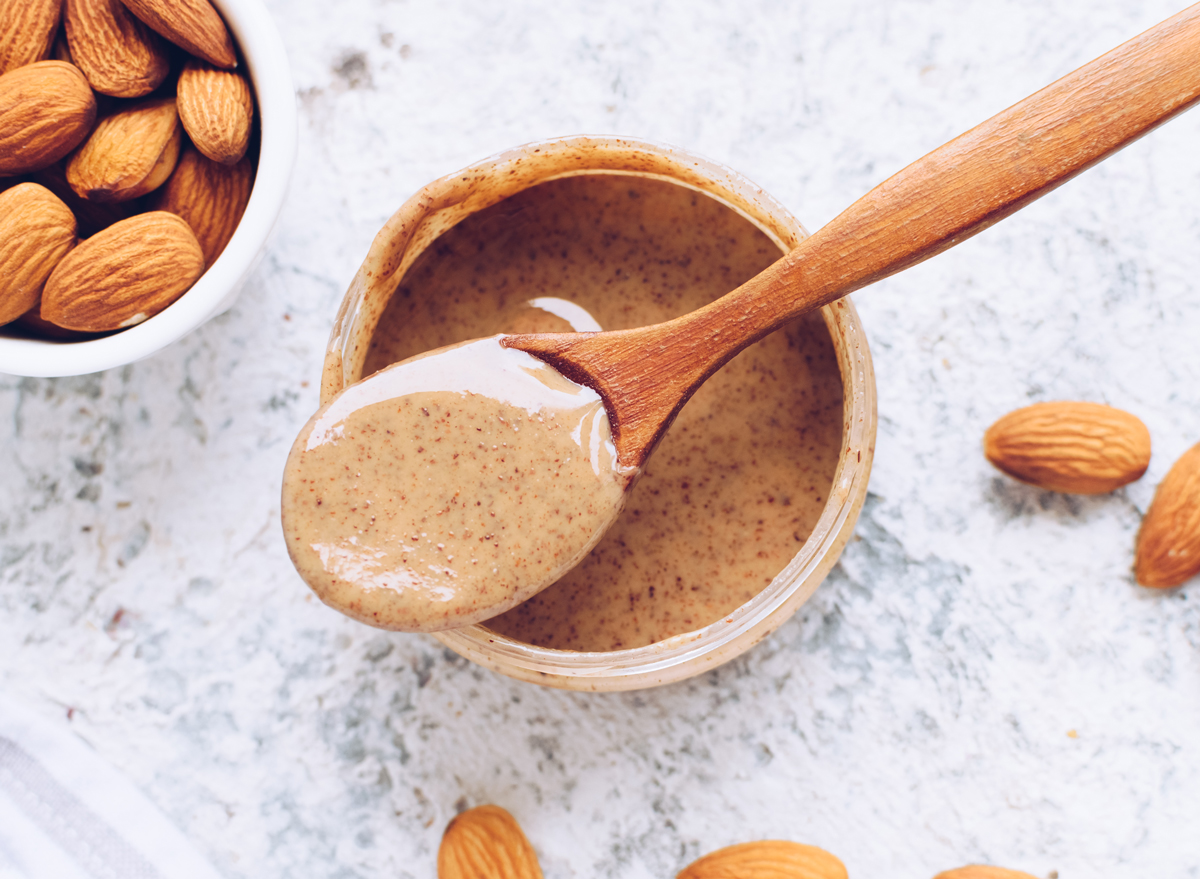One Major Side Effect of Eating Almond Butter, Says Science

Whether you’re blending it into a smoothie or spreading it on your toast in the morning, almond butter is a delicious way to add healthy fat, protein, and fiber to your daily routine. In fact, despite its relatively high calorie content, eating almond butter may even help you lose weight—according to a 2015 study published in the European Journal of Nutrition, eating almonds as a mid-morning snack was associated with greater satiety and lower subsequent food intake.
While you may have already guessed that a healthy nut butter like almond butter may support weight loss, there is one truly surprising side effect you may experience when you eat almond butter: it could actually improve your heart health over time. (Related: Peanut Butter vs Almond Butter: What is Healthier For You?)
According to 2018 research published in the journal Nutrients, consuming almonds is associated with reductions in low-density lipoprotein-cholesterol (LDL-C), which is good news for your heart. Having high LDL levels is linked to higher rates of cardiovascular disease.
There are even more ways that almond butter can prevent or reduce risk factors for heart disease. A 2020 meta-analysis published in Complementary Therapies in Medicine found that, among 1,128 individuals studied, almond intake reduced blood pressure, potentially lowering a person’s risk of heart disease over time.
If you’re not eager to start making almond butter part of every meal, don’t fret: it doesn’t take a massive amount of almond butter to support heart health. A 2020 prospective model study published in BMC Public Health found that an extremely modest amount of almonds—or almond butter—can have a major effect on cardiovascular risk factors. In the BMC study, researchers found that consuming just 1.5 ounces of almonds, or 36 nuts, per day could significantly lower a person’s cardiovascular risk in the long run.
That said, not all almond butters are created equal when it comes to your heart health.
Both sodium and sugar have been linked to the development of heart disease, so when you’re selecting a jar of almond butter at your local grocery store, make sure you’re picking an almond butter with only a small amount of either ingredient, if any. Looking for a healthy way to incorporate almond butter into your regular routine? Check out the 7 Best Almond Butter Brands Worth Buying!
For more healthy eating news, make sure to sign up for our newsletter!








